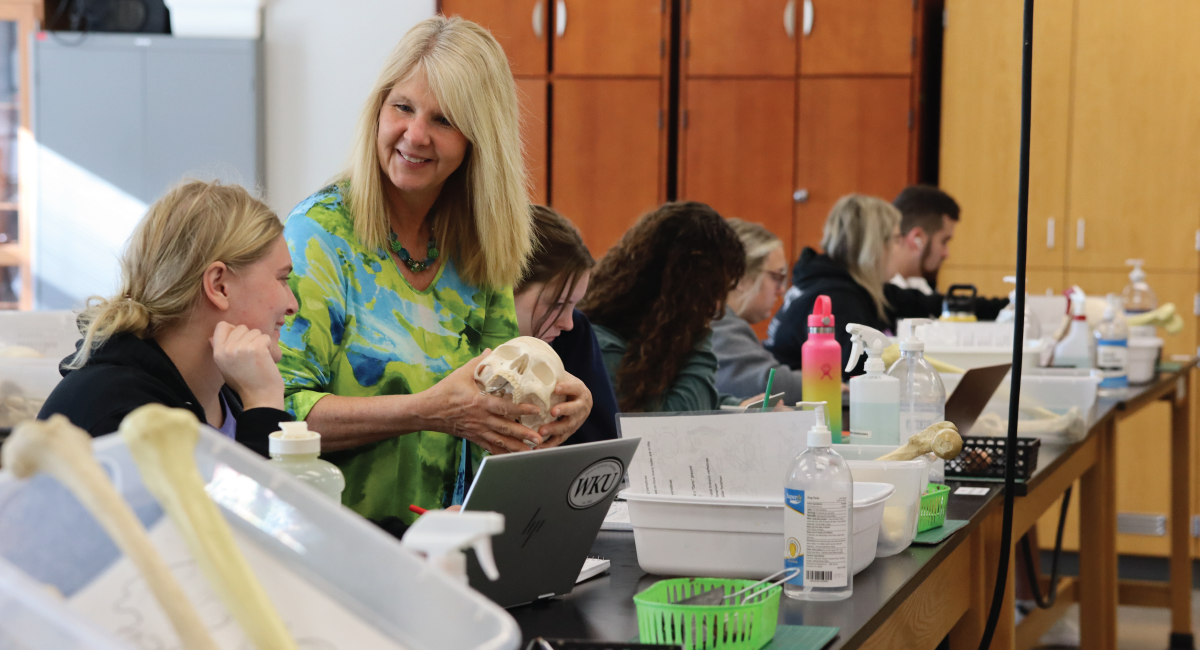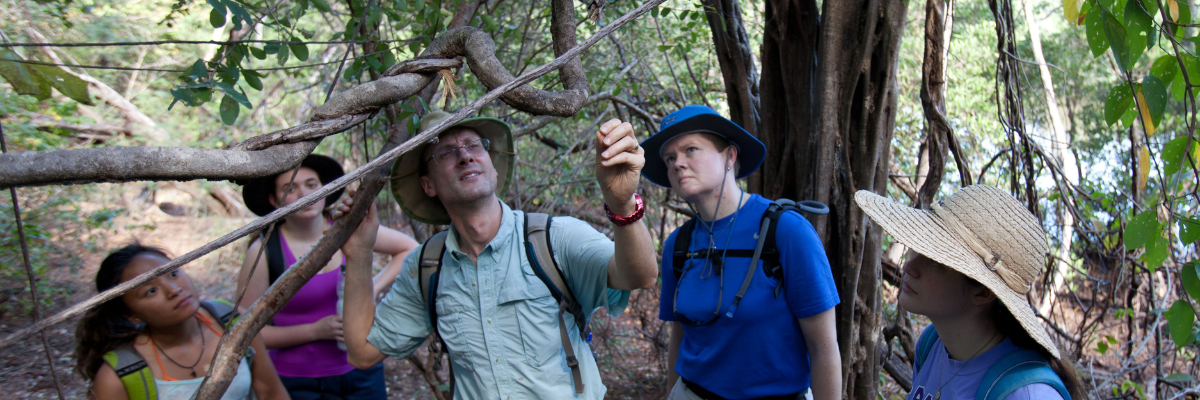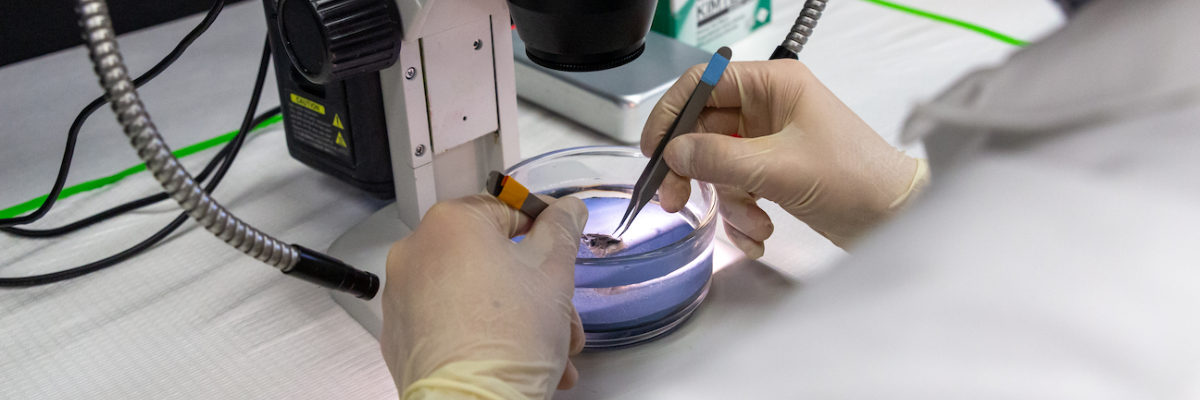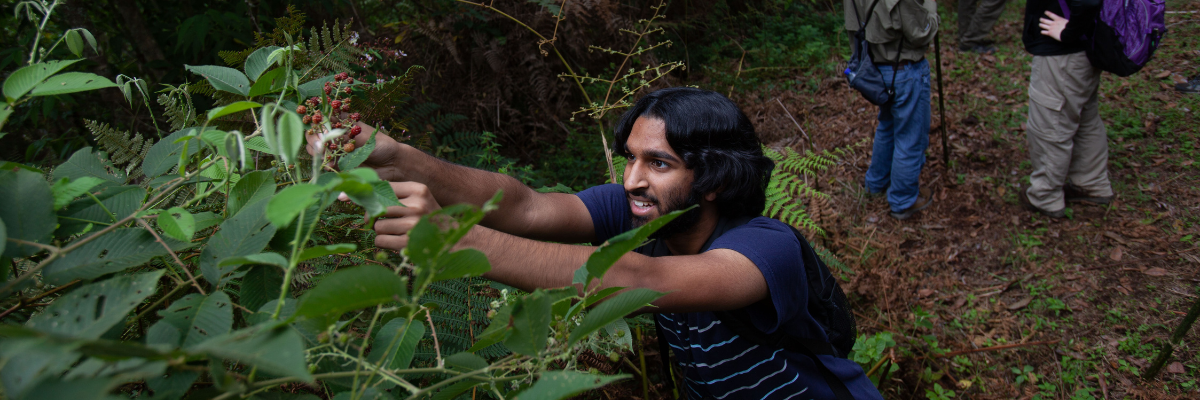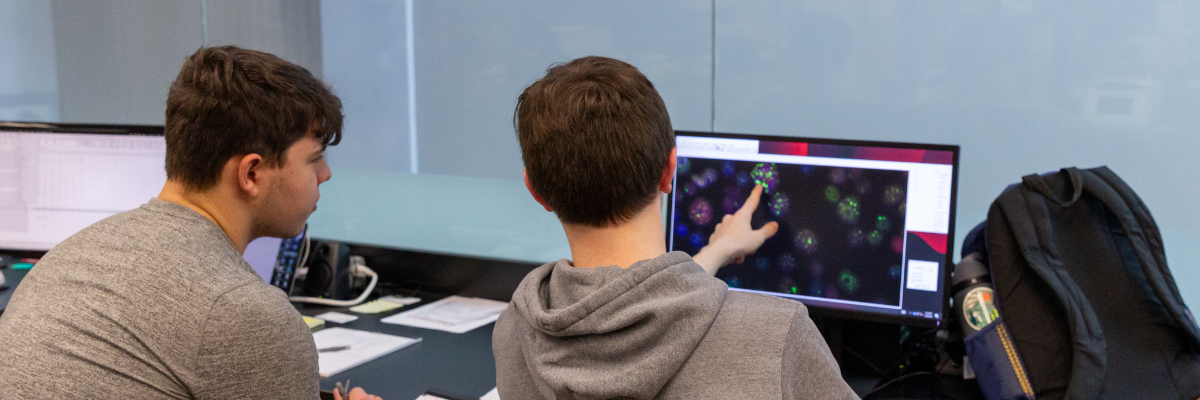Biology, Bachelor of Science (525)
- Undergraduate
- Bachelor of Science
- Science and Engineering
- Biology
Overview
The major in biology (525) provides students the opportunity to undertake an in-depth study of biology. A minor, second major, or certificate is not required. In addition to a required core, students complete a range of biology elective courses that can be tailored to their individual interests. In addition to coursework, students have the opportunity to apply up to six semester hours of faculty-guided independent research and/or internship towards their degree. This program is particularly well-suited to students interested in pursuing advanced study in a biology-related field or who require training in specific areas to support their career goals.
Program Requirements (48 hours)
This option for a major in biology requires a minimum of 48 hours in biology with 24 hours at the 300 or higher level. No minor is required. A range of upper level courses are available in ecology and evolutionary biology, molecular and cellular biology, plant biology, animal biology, and microbiology.
A baccalaureate degree requires a minimum of 120 unduplicated semester hours. More information can be found at www.wku.edu/registrar/degree_certification.php.
Students who began WKU in the Fall 2014 and thereafter should review the Colonnade requirements located at: https://www.wku.edu/colonnade/colonnaderequirements.php.
| Code | Title | Hours |
|---|---|---|
| Required Courses | ||
| BIOL 120 & BIOL 121 | Biological Concepts: Cells Metabolism and Genetics and Biological Concepts: Cells, Metabolism, and Genetics Lab 1 | 4 |
| BIOL 122 & BIOL 123 | Biological Concepts: Evolution, Diversity, and Ecology and Biological Concepts: Evolution, Diversity, and Ecology Lab 1 | 4 |
| BIOL 489 | Professional Aspects of Biology | 1 |
| Restricted Electives * | 4 | |
| Select one of the following: | 4 | |
BIOL 222 & BIOL 223 | Plant Biology and Diversity and Plant Biology and Diversity Lab | |
BIOL 224 & BIOL 225 | Animal Biology and Diversity and Animal Biology and Diversity Lab | |
BIOL 226 & BIOL 227 | Microbial Biology and Diversity and Microbial Biology and Diversity Lab | |
| Select one of the following: | 4 | |
BIOL 319 & BIOL 322 | Introduction to Molecular and Cell Biology and Introduction to Molecular and Cell Biology Laboratory | |
BIOL 327 & BIOL 337 | Genetics and Genetics Laboratory | |
| Select one of the following: | 3 | |
BIOL 315 | Ecology | |
or BIOL 316 | Evolution: Theory and Process | |
| Laboratory Experience Courses * | ||
| Select five of the following: | ||
BIOL 212 | Genome Discovery Exploration | |
BIOL 312 | Bioinformatics | |
BIOL 321 | Comparative Anatomy | |
BIOL 322 | Introduction to Molecular and Cell Biology Laboratory | |
BIOL 325 | Insect Biodiversity | |
BIOL 328 | Immunology | |
BIOL 331 | Animal Physiology Laboratory | |
BIOL 337 | Genetics Laboratory | |
BIOL 348 | Plant Taxonomy | |
BIOL 350 | Introduction to Recombinant Genetics | |
BIOL 355 | Ecology Lab | |
BIOL 356 | Ornithology Lab | |
BIOL 404 | Techniques and Theory of Electron Microscopy | |
BIOL 412 | Cell Biology Laboratory | |
BIOL 447 | Biochemistry Laboratory | |
BIOL 450 | Recombinant Gene Technology | |
BIOL 456 | Ichthyology | |
BIOL 457 | Herpetology | |
BIOL 458 | Fisheries Management | |
BIOL 470 | Pathogenic Microbiology | |
BIOL 485 | Field Biology | |
BIOL 496 | Plant Biotechnology | |
BIOL 497 | Aquatic Field Ecology | |
| Science Process Courses * | ||
| Select one of the following: | ||
BIOL 212 | Genome Discovery Exploration | |
BIOL 312 | Bioinformatics | |
BIOL 331 | Animal Physiology Laboratory | |
BIOL 350 | Introduction to Recombinant Genetics | |
BIOL 355 | Ecology Lab | |
BIOL 397 | Scientific Process | |
BIOL 404 | Techniques and Theory of Electron Microscopy | |
BIOL 407 | Virology | |
BIOL 412 | Cell Biology Laboratory | |
BIOL 456 | Ichthyology | |
BIOL 457 | Herpetology | |
BIOL 470 | Pathogenic Microbiology | |
BIOL 495 | Molecular Genetics | |
BIOL 496 | Plant Biotechnology | |
BIOL 497 | Aquatic Field Ecology | |
HON 404 | Honors Thesis / Project II | |
| Elective Course Work 2* | ||
- 1
Must complete with a grade of “C” or better.
- 2
Elective Coursework:
- In consultation with their advisor, students select majors-level coursework to obtain a minimum of 48 credits total, provided that at least 24 hours total are upper division courses.
- Students may count up to 6 credit hours of a combination of BIOL 369 and/or BIOL 399, and up to 4 credits of BIOL 485 toward this major.
- *
The following BIOL courses will not count towards the BIOL electives nor the Biology major requirements: BIOL 113, BIOL 114, BIOL 131, BIOL 231, BIOL 207, BIOL 208, BIOL 295, BIOL 303, BIOL 390.
Supporting Courses
Because an understanding of the principles of subjects outside of biology, in particular agriculture, chemistry, geography and geology, mathematics, physics and sociology is essential to the study of biology; majors are required to complete support courses.
| Code | Title | Hours |
|---|---|---|
| MATH 116 | College Algebra | 3 |
| MATH 117 | Trigonometry | 3 |
| or MATH 136 | Calculus I | |
| CHEM 120 & CHEM 121 | College Chemistry I and College Chemistry I Laboratory | 5 |
| Select one of the following: | 3 | |
| Select one of the following: | 4 | |
PHYS 231 & PHYS 232 | Introduction to Physics and Biophysics I and Laboratory for Physics and Biophysics I | |
PHYS 255 & PHYS 256 | University Physics I and University Physics I Lab | |
| Select two of the following: | 6 | |
AGRO 350 | Soils | |
BIOL 382 | Introductory Biostatistics | |
CHEM 222 & CHEM 223 | College Chemistry II and College Chemistry II Laboratory | |
CHEM 340 & CHEM 341 | Organic Chemistry I and Organic Chemistry Laboratory I | |
BDAN 305 | Data Modeling and Analysis | |
CS 146 | Introduction to Programming | |
GISC 316 | Geographic Information Systems I | |
GISC 317 | Geographic Information Systems II | |
MATH 136 | Calculus I | |
MATH 137 | Calculus II | |
SOCL 302 | Social Research Methods | |
| Total Hours | 24 | |
Finish in Four Plans
| First Year | |||
|---|---|---|---|
| Fall | Hours | Spring | Hours |
| BIOL 120 & BIOL 121 (or BIOL 122, BIOL 123) | 4 | BIOL 120 & BIOL 121 (or BIOL 122, BIOL 123) | 4 |
| MATH 116 (or higher) | 3 | MATH 117 (or higher) | 3 |
| ENG 100 | 3 | Colonnade - Explorations | 3 |
| HIST 101 or HIST 102 | 3 | CHEM 120 & CHEM 121 | 5 |
| 13 | 15 | ||
| Second Year | |||
| Fall | Hours | Spring | Hours |
| BIOL 222 & BIOL 223 (or BIOL 224, BIOL 225 or BIOL 226 or BIOL 227) | 4 | BIOL 319 & BIOL 322 (or BIOL 327 and BIOL 337) | 4 |
| Biology Science Supporting course (see Biology advisor) | 4 | ENG 200 | 3 |
| Colonnade - Explorations | 3 | BIOL Science Supporting Course (see Biology advisor) | 4 |
| Upper-level BIOL elective with lab (see Biology advisor) | 4 | Upper-Level BIOL elective with lab | 4 |
| 15 | 15 | ||
| Third Year | |||
| Fall | Hours | Spring | Hours |
| BIOL 315 or BIOL 316 | 3 | Upper-Level BIOL Elective with Lab | 4 |
| COMM 145 | 3 | Upper-Level BIOL Elective | 3 |
| Colonnade - Explorations | 3 | Upper-Level BIOL Elective with Lab | 4 |
| Upper-Level BIOL Elective with lab (see Biology advisor) | 4 | Colonnade Connections | 3 |
| Colonnade - Explorations | 3 | Writing in the Disciplines | 3 |
| 16 | 17 | ||
| Fourth Year | |||
| Fall | Hours | Spring | Hours |
| BIOL 489 | 1 | Upper-Level BIOL Elective | 4 |
| Upper-Level BIOL Elective | 4 | Upper-Level BIOL Elective | 4 |
| Colonnade - Connections | 3 | Colonnade - Connections | 3 |
| World Language | 3 | Upper-Level BIOL Elective | 4 |
| BIOL Process Elective | 3 | ||
| 14 | 15 | ||
| Total Hours 120 | |||


